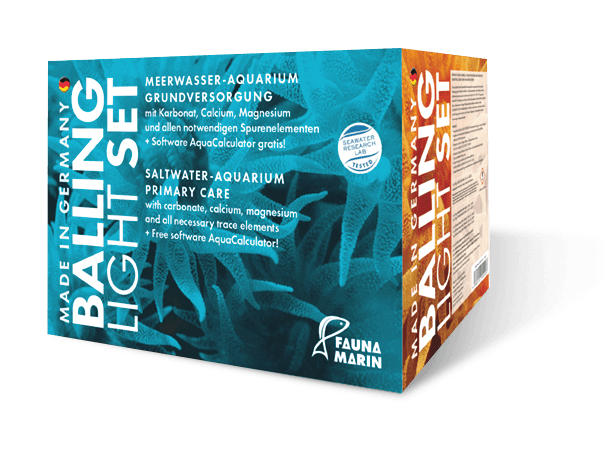Barium
We consider barium an essential element for reef aquaria. It plays a role in coral growth and serves to control calcification within the coral skeleton. It is important that barium is adjusted in the right ratio to calcium and strontium.
Barium has long been used in trace element concentrates. However, we do not use it, as the amount of barium from other sources usually is sufficient. Barium is introduced into the tank via activated carbon, salt mixtures, cements and food. The natural concentration of 5–20 µg/l(0,26 US.liq.gal.) should be maintained. Values above 200 µg/l(0,26 US.liq.gal.) can lead to problems. This causes the tissue to turn grey. Especially if the iodine concentration is too low, too high barium values have a stronger effect. Barium can be reduced by partial water changes, reduced use of activated carbon and/or by filtering via aluminium-based phosphate adsorbers (PHOS).
Value too high:
Reduction of addition, reduction of feed and activated carbons, filtration via Powerphos, Phos 0.04, Phos and partial water change.
Value too low:
Elemental Trace Ba.
| Variety | Alkaline earth metal |
|---|---|
| Benefits | Skeleton formation, growth |
| Standard value | 5-20 µg/l (0,26 US.liq.gal.) |
| Skill Level | Red, only for experienced aquarists |
| Source | salt mix, supply systems trace element mixtures, activated carbons, animal feed, decorations |
| Available | Elementals Trace Ba |
| Importance 1–6 | 3 |
| Detection quality | reliable |
| Relative values | calcium, strontium, iodine |

Balling Light:
Barium is not added in the Balling Light System because other sources are sufficiently high. If values are too low, it is usually sufficient to change the salt mix and adjust the appropriate value over some time with Profesional Sea Salt. A ten percent partial water change per week is sufficient for this.
Tip:
Make sure to use modern supply systems such as the Balling Light System. Regular scientifically based checks of the raw materials used will ensure that you do not contaminate the aquarium with undesirable impurities. Even small quantities accumulate over time. Professionally produced and ICP controlled salt mixes as well as regular partial water changes ensure a long-term success with your reef aquarium.